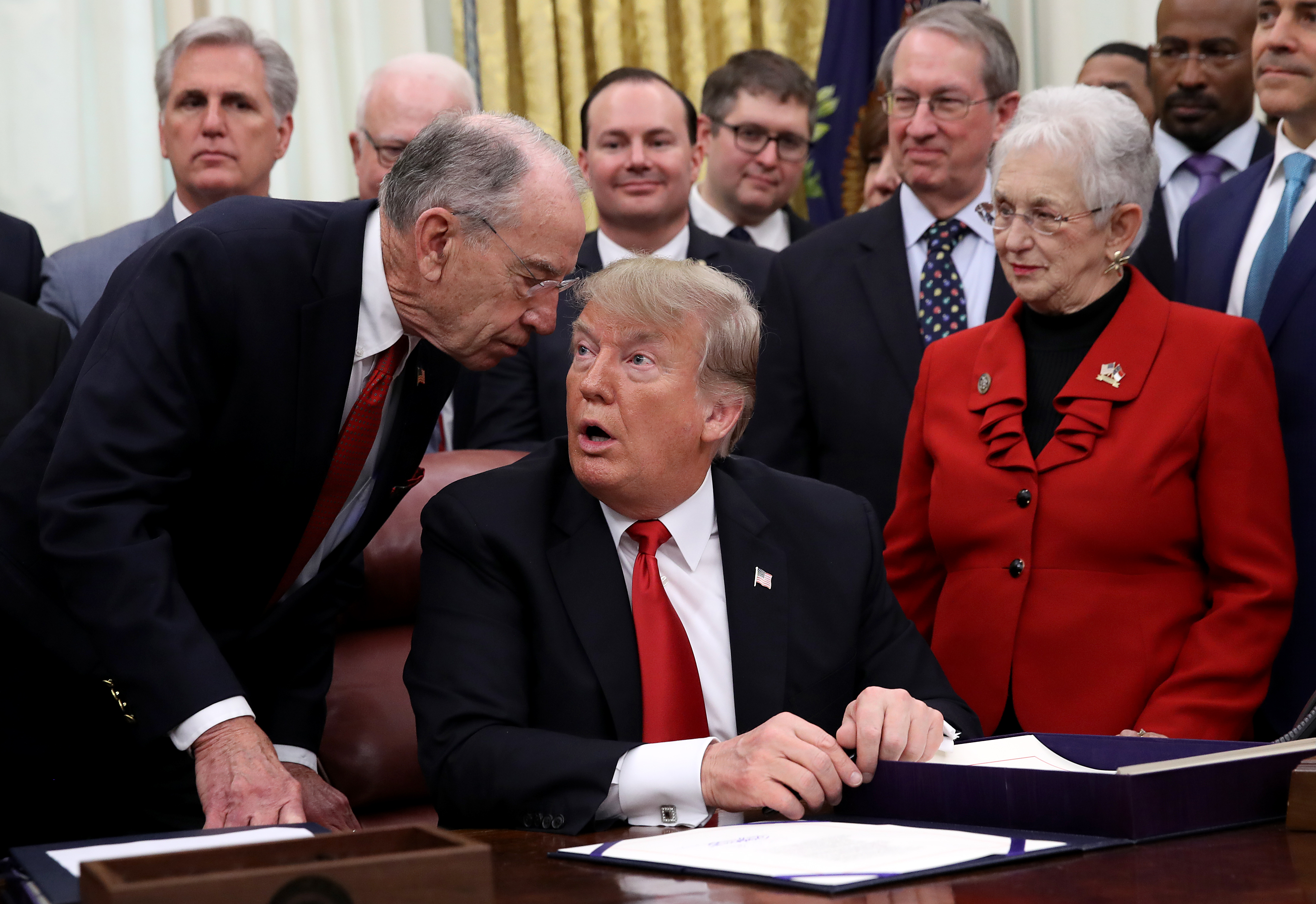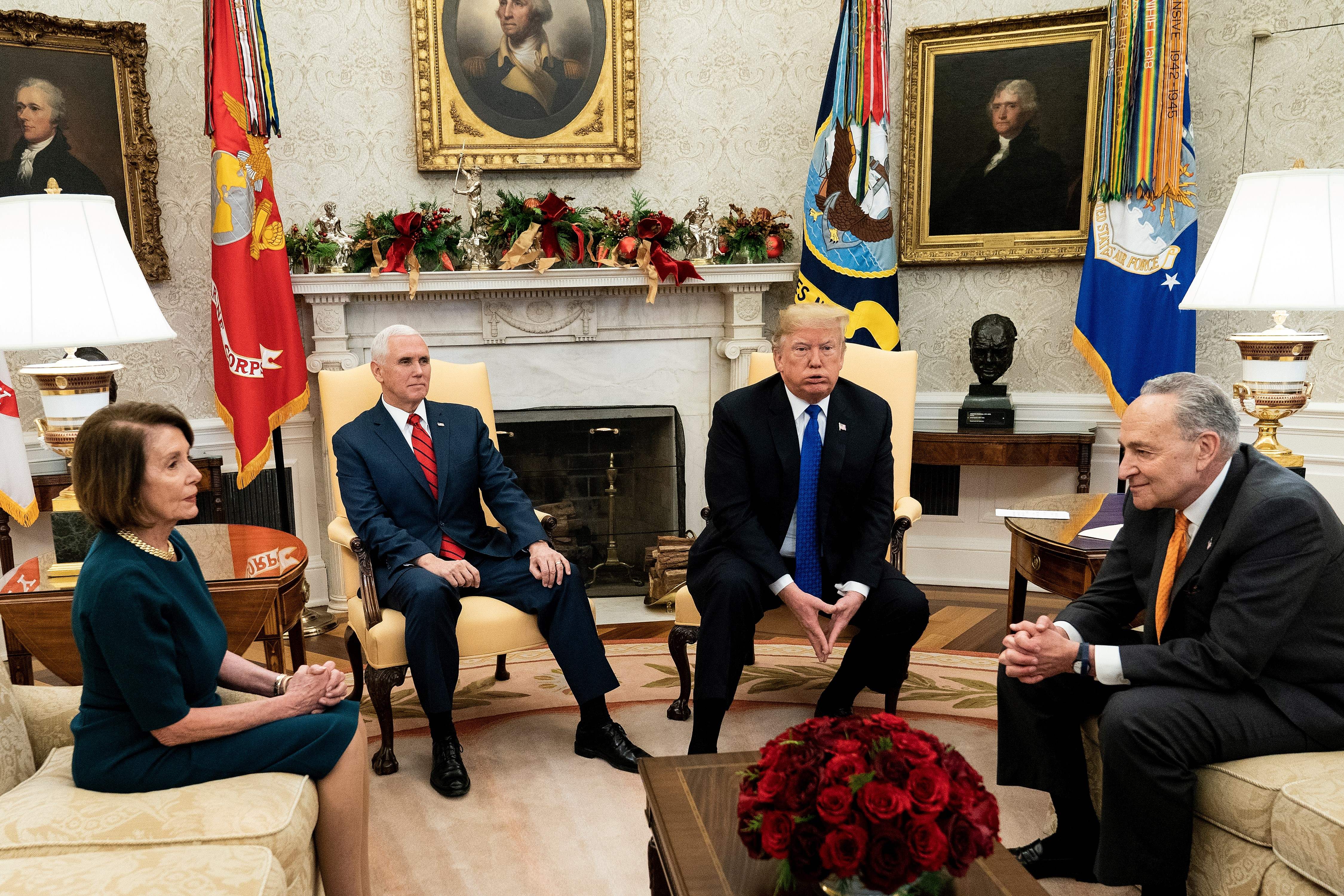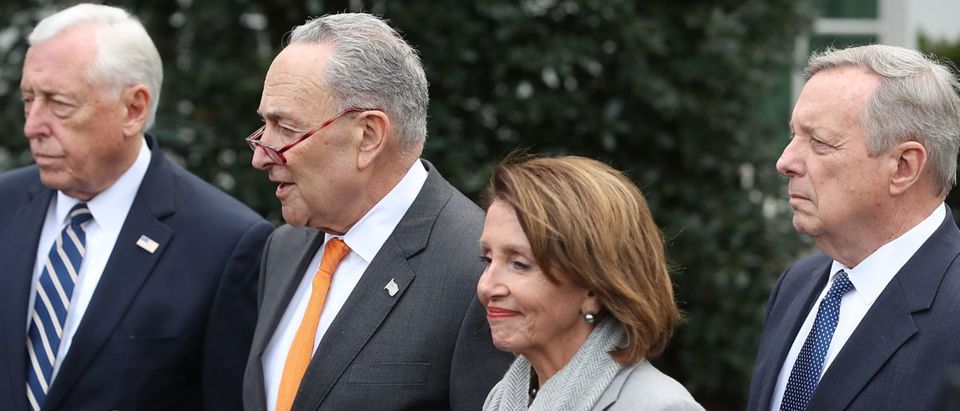Democratic lawmakers have rebuffed every offer the White House has made to end a partial government shutdown and negotiate the funding of a proposed wall along the U.S. southern border.
The shutdown began 20 days ago when Congress passed continuing resolutions providing only $1.6 billion in funding for border security. These funds would only be allowed for building additional infrastructure on the border, not for Trump’s proposed border wall. (RELATED: Trump Refuses To Budge In Shutdown Demand: ‘As Long As It Takes’)
Trump summoned Republican congressional leaders to the White House to inform them that he would not sign the continuing resolutions unless they provided $5.6 billion in funding. Funding for the government ran out at midnight on Dec. 22, leaving approximately 25 percent of the federal government unfunded. Democratic lawmakers said they refused to negotiate with the White House and that any blame for partial government shutdown would fall at the feet of the president.

Senate Judiciary Committee Chairman Chuck Grassley (L) (R-IA) tells U.S. President Donald Trump that he needs to leave to cast a vote in the U.S. Senate during the signing ceremony for the First Step Act and the Juvenile Justice Reform Act in the Oval Office of the White House December 21, 2018 in Washington, DC. (Photo by Win McNamee/Getty Images)
Vice President Mike Pence, Acting Chief of Staff Mick Mulvaney and other White House staffers then approached Democratic Sen. Chuck Schumer with an offer during the Christmas week to re-open the government with only approximately $2.5 billion in funding for the wall.
Senate Minority Leader Chuck Schumer and then-House Minority Leader Nancy Pelosi waited days to officially respond to the offer but informed the White House shortly after the Christmas holiday that they were not interested in pursuing a deal.
Limited talks began again in earnest after the New Year with Congress coming back into session. Pelosi, Schumer and Republican leaders gathered at the White House for the first time after the shutdown, but made no progress. The Democratic leaders continued to maintain that they would only negotiate if Trump re-opened the government or agreed to their initial offer of $1.6 billion.
Pelosi and Schumer came to the White House again Friday and both sides expressed limited optimism. Trump held a press conference in which he revealed he would establish a working group of Pence, Homeland Security Secretary Kirstjen Nielsen and others to meet with Democratic staffers over the weekend to move toward negotiation.

Nancy Pelosi, VP Mike Pence, President Donald Trump, and Senate Minority Leader Charles Schumer wait for a meeting at the White House (Brendan Smialowski/AFP/Getty Images)
The White House then put together for Democratic lawmakers a concrete package which made the official concession of a steel barrier fence, instead of a concrete wall. Mulvaney posited over the weekend that the concession would allow Democrats to claim a win, if they chose to provide funding. The offer also included humanitarian assistance funds and other drug enforcement appropriations.
Today we made it crystal clear in a letter to Congress what it would take to address the illegal border crossing and humanitarian crisis by securing our nations border.
To view → https://t.co/kfIyV0ykuS pic.twitter.com/VUkXekThFv
— Russ Vought (@RussVought45) January 7, 2019
The offer finally culminated in a third contentious meeting between Democratic lawmakers and Trump, in which Pelosi reiterated that they would not negotiate border wall funding until the government was re-opened. After Trump pressed Pelosi on whether she would give him any border wall funding even were he to re-open the government, she again said, “No.”
The president flatly declared “bye-bye,” and left the room.
Trump, on his way to the southern border Thursday to highlight the need for a wall, told reporters outside the White House that, while he continued to prefer a deal, he was now considering declaring a national emergency. The president said his lawyers told him that he had “the absolute right” to declare one if necessary, which would allow him to use military funds to construct the wall.


